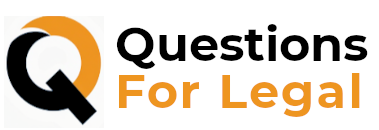Workers’ compensation is a crucial system designed to protect employees who suffer work-related injuries or illnesses. It provides financial and medical benefits to help injured workers recover and return to work. Understanding the workers’ compensation process is essential for individuals who find themselves injured on the job, as it ensures they receive the necessary support and compensation.
Table of Contents
- Understanding Workers’ Compensation
- Reporting the Workplace Injury
- Seeking Medical Treatment
- Notifying the Employer
- Initiating the Claims Process
- Investigating the Claim
- Determining Benefits and Compensation
- Appeals and Dispute Resolution
- Returning to Work
- Legal Considerations and Obtaining Legal Representation
- Final Thoughts
Understanding Workers’ Compensation
Workers’ compensation is a state-mandated insurance program that aims to protect employees and provide them with financial and medical assistance in the event of a work-related injury or illness. It serves as a no-fault system, meaning that employees are entitled to benefits regardless of who was at fault for the incident.
The fundamental principle behind workers’ compensation is to ensure that injured workers receive timely medical treatment and compensation for lost wages during their recovery. This system not only benefits employees but also shields employers from potential lawsuits related to workplace injuries.
Eligibility criteria for filing a claim
To be eligible for workers’ compensation benefits, certain criteria must be met. While specific requirements may vary by jurisdiction, the general eligibility criteria typically include the following:
- Employment status: The injured individual must be an employee of the company or organization where the injury occurred. Independent contractors and volunteers may not be covered.
- Work-relatedness: The injury or illness must have arisen out of and occurred in the course of employment. This means that it must be directly related to the job or work environment.
- Notice and reporting: The injured worker must promptly notify their employer about the incident or injury. Failing to report the injury within the specified timeframe may jeopardize the claim.
- Statutory time limits: Each jurisdiction has specific time limits for filing a workers’ compensation claim. It is crucial to adhere to these deadlines to preserve your rights to benefits.
Types of injuries covered by workers’ compensation
Workers’ compensation typically covers a wide range of work-related injuries and illnesses. Some common examples include:
- Physical injuries: These can include fractures, sprains, strains, cuts, burns, back injuries, repetitive motion injuries, and occupational diseases caused by exposure to hazardous substances.
- Occupational illnesses: Workers’ compensation may cover illnesses that develop over time due to exposure to harmful substances or conditions in the workplace. Examples include respiratory disorders, hearing loss, and certain types of cancer.
- Mental health conditions: In some jurisdictions, workers’ compensation may also cover mental health conditions resulting from work-related stress, trauma, or psychological injuries.
Understanding the types of injuries covered by workers’ compensation is crucial for ensuring that you receive the appropriate benefits for your specific situation.
Reporting the Workplace Injury
As soon as you suffer a work-related injury or become aware of an occupational illness, it is essential to notify your employer as quickly as possible. Reporting the injury promptly serves several purposes:
- Timely medical attention: Prompt reporting allows your employer to arrange for immediate medical care, ensuring that you receive appropriate treatment for your injuries. Delaying the reporting can result in a delay in receiving medical attention, potentially exacerbating the injury.
- Compliance with deadlines: Workers’ compensation laws establish specific deadlines for reporting workplace injuries. Failure to report within these time limits may result in the denial of your claim. By reporting the injury promptly, you protect your rights to workers’ compensation benefits.
- Preserving evidence: Prompt reporting helps establish a clear link between the injury and the workplace. It ensures that important evidence, such as witness statements or physical conditions that contributed to the incident, can be documented accurately.
Importance of documenting the incident
When reporting a workplace injury, it is vital to document the incident thoroughly. Documentation serves as evidence to support your claim and can include the following:
- Incident details: Provide a comprehensive account of how the injury occurred, including the date, time, and location of the incident. Describe the sequence of events leading up to the injury and any contributing factors.
- Witnesses: If there were witnesses to the incident, gather their contact information. Their statements can provide additional support for your claim.
- Photos or videos: If possible, take photographs or videos of the scene where the injury occurred. Visual evidence can help establish the conditions that led to the incident.
- Medical records: Maintain copies of all medical records, including diagnosis, treatment plans, prescriptions, and follow-up appointments. These records play a crucial role in substantiating your injury and the need for medical care.
Notifying the appropriate authorities
In addition to reporting the injury to your employer, it may be necessary to notify the appropriate authorities, depending on your jurisdiction’s requirements. Some jurisdictions require reporting to the workers’ compensation board, labor department, or other regulatory bodies. It is essential to be aware of your legal obligations and follow the prescribed reporting procedures to protect your rights.
Seeking Medical Treatment
After a workplace injury, it is crucial to seek immediate medical attention, especially if the injury is severe or life-threatening. Here’s why immediate medical attention is essential:
- Ensuring your well-being: Prompt medical care aims to address and treat your injuries, minimizing their impact on your health and promoting a faster recovery.
- Establishing a link to the workplace injury: Seeking immediate medical attention helps establish a clear connection between your injuries and the workplace incident. This connection is crucial when filing a workers’ compensation claim.
- Documentation of injuries: The medical records generated during your initial visit serve as vital evidence for your claim. They document the severity and extent of your injuries, providing a foundation for the benefits you may be entitled to.
Choosing an authorized healthcare provider
When seeking medical treatment for a work-related injury, it is essential to select an authorized healthcare provider. Here’s why this is important:
- Compliance with workers’ compensation requirements: Some jurisdictions have specific regulations regarding the selection of healthcare providers for work-related injuries. It is crucial to adhere to these requirements to ensure that your medical expenses are covered by workers’ compensation.
- Accessing specialized care: Authorized healthcare providers often have expertise in treating workplace injuries and are familiar with the workers’ compensation system. They can provide appropriate care and guidance throughout your recovery process.
- Coordination with the claims process: Authorized healthcare providers are experienced in documenting injuries and providing the necessary reports and medical records required for your workers’ compensation claim. They play a vital role in supporting your case.
Documenting medical treatment and expenses
Proper documentation of medical treatment and expenses is vital when filing a workers’ compensation claim. Consider the following tips for effective documentation:
- Keep copies of all medical records: Maintain copies of medical reports, diagnoses, treatment plans, and any other documents related to your medical care. These records serve as evidence of your injuries and the treatment received.
- Retain receipts and bills: Keep track of all medical-related expenses, including prescriptions, medical equipment, rehabilitation services, and transportation costs for medical visits. Save receipts and invoices as evidence of your out-of-pocket expenses.
- Maintain a treatment journal: Consider keeping a journal to record your symptoms, progress, and any challenges you face during your recovery. This personal account can provide valuable insight when discussing your case with healthcare providers or legal professionals.
Notifying the Employer
Promptly informing your employer about the work-related injury is essential. Here’s why this step is crucial:
- Compliance with legal requirements: Workers’ compensation laws require injured employees to notify their employers within a specific timeframe. Failure to report within this timeframe may result in the denial of your claim. By promptly informing your employer, you ensure compliance with the legal obligations.
- Establishing a clear timeline: Timely notification helps establish a clear timeline of events and ensures that your employer is aware of the incident. This knowledge allows them to take appropriate actions, such as initiating the claims process and conducting any necessary investigations.
Providing necessary details and documentation
When notifying your employer about the work-related injury, be prepared to provide them with essential details and documentation. Here’s what you should consider:
- Date, time, and location: Clearly communicate the date, time, and location of the incident. This information helps your employer understand when and where the injury occurred, allowing them to verify its work-related nature.
- Description of the incident: Provide a detailed account of how the injury occurred, including the events leading up to it. Be specific about any equipment, tools, or work processes involved. This description helps your employer understand the circumstances surrounding the incident.
- Witness statements: If there were witnesses to the incident, gather their statements and contact information. Witness statements can support your claim and provide additional evidence.
- Medical documentation: If you have received medical treatment, provide your employer with copies of relevant medical records, including diagnoses, treatment plans, and any work restrictions recommended by your healthcare provider. This documentation helps your employer understand the severity and impact of your injuries.
Following the employer’s reporting procedures
Each employer may have specific reporting procedures in place for work-related injuries. It is essential to familiarize yourself with these procedures and follow them accordingly. Here’s why this is important:
- Compliance with employer policies: Following your employer’s reporting procedures ensures that you comply with their internal policies and requirements. Failure to adhere to these procedures may result in unnecessary delays or complications in the claims process.
- Timely initiation of the claims process: By following the employer’s reporting procedures, you help initiate the workers’ compensation claims process promptly. This allows for a smoother transition from the notification stage to the investigation and evaluation of your claim.
Initiating the Claims Process
To initiate the claims process, you will need to file a workers’ compensation claim form with the appropriate entity. The specific form and the entity to which it should be submitted may vary depending on your jurisdiction. Here’s what you need to consider:
- Obtain the correct form: Contact your employer, workers’ compensation board, or the relevant government agency to obtain the appropriate claim form. Make sure to use the correct form to ensure that your claim is processed accurately.
- Fill out the form accurately: Complete the claim form accurately, providing all the requested information. This may include personal details, employment information, a description of the injury, and any relevant medical documentation. Take the time to review the form and ensure that all information is correct and complete.
- Submit the form within the specified timeframe: Be mindful of the deadline for filing the claim form. Failure to submit the form within the specified timeframe may result in the denial of your claim. Submit the form as soon as possible to initiate the claims process.
Understanding the relevant deadlines
Timeliness is crucial when it comes to initiating the claims process. Familiarize yourself with the relevant deadlines and adhere to them closely. Here’s what you need to know:
- Statutory time limits: Workers’ compensation laws specify a timeframe within which you must file your claim. These time limits vary by jurisdiction but are typically within days or weeks of the injury or the discovery of an occupational illness. Understanding and complying with these deadlines is essential to preserve your rights to benefits.
- Reporting deadlines: In addition to the statutory time limits for filing a claim, your employer may have internal reporting deadlines. Be aware of your employer’s policies and procedures, and ensure that you report the injury within the specified timeframe.
Including essential information and supporting documents
When filing your workers’ compensation claim form, it is essential to include all necessary information and supporting documents. Here’s what you should consider:
- Detailed description of the injury: Provide a thorough description of your work-related injury, including the date, time, location, and circumstances surrounding the incident. Be clear and concise in your description, focusing on the impact of the injury on your ability to work.
- Medical records: Include copies of relevant medical records, such as diagnoses, treatment plans, and medical bills. These records provide evidence of the injury and the medical expenses incurred.
- Witness statements: If there were witnesses to the incident, include their statements and contact information. Witness statements can strengthen your claim by providing additional support and corroborating the details of the incident.
- Any other relevant documentation: Include any additional documents that may support your claim, such as accident reports, photographs, or video evidence.
Investigating the Claim
The claims investigation process is designed to gather all pertinent information to evaluate the legitimacy of your workers’ compensation claim. Here’s an overview of what to expect during this stage:
- Review of documents: The insurance company or claims administrator will carefully review the claim form, any supporting documentation, medical records, witness statements, and other relevant evidence. They will assess the details of the incident, the severity of the injury, and the connection to the workplace.
- Interviews and statements: During the investigation, you and potentially other relevant parties may be asked to provide statements or participate in interviews. These interviews aim to gather additional information about the incident, the injury, and your work-related activities.
- Independent medical examination: In some cases, the insurance company or claims administrator may request an independent medical examination (IME) by a healthcare professional of their choosing. The purpose of the IME is to assess the extent of your injuries, verify the need for ongoing treatment, and evaluate any work restrictions.
- Surveillance: In certain situations, the insurance company or claims administrator may conduct surveillance to gather additional information about your activities. This surveillance aims to ensure that the reported injuries are consistent with your daily activities and limitations.
Cooperation with the insurance company or claims administrator
Cooperating with the insurance company or claims administrator throughout the investigation is crucial. Here’s why cooperation is important:
- Provide accurate and complete information: Be honest and forthcoming when providing information or statements during the investigation. Ensure that all details are accurate and complete to avoid potential complications or disputes regarding your claim.
- Timely responses: Respond promptly to any requests for additional information, interviews, or examinations. Delayed responses may result in unnecessary delays or even the denial of your claim.
- Follow instructions: Follow any instructions or guidelines provided by the insurance company or claims administrator. Failure to comply with their requests may negatively impact the evaluation of your claim.
- Maintain open communication: Keep the lines of communication open with the insurance company or claims administrator. If you have any questions or concerns during the investigation, don’t hesitate to reach out for clarification.
Possible outcomes of the investigation
After completing the investigation, the insurance company or claims administrator will make a determination regarding your workers’ compensation claim. The possible outcomes include:
- Acceptance of the claim: If the investigation confirms the legitimacy of your claim, it will be accepted, and you will be eligible for workers’ compensation benefits. These benefits may include coverage for medical expenses, lost wages, vocational rehabilitation, and other applicable benefits.
- Denial of the claim: If the investigation reveals reasons to doubt the validity of your claim, it may be denied. Common reasons for denial include insufficient evidence, conflicting information, or a determination that the injury is not work-related. In the event of a denial, you have the right to appeal the decision.
- Further evaluation or negotiation: In some cases, the investigation may raise questions or require further evaluation. This may lead to negotiations between you, the insurance company or claims administrator, and potentially legal representation to reach a resolution.
Determining Benefits and Compensation
To determine the benefits and compensation you are eligible for, the severity and impact of your injury will be evaluated. Here’s what you can expect during this evaluation:
- Medical assessments: Medical professionals, including independent medical examiners, may assess your injury to determine its severity, long-term effects, and any limitations it may impose on your ability to work.
- Permanent impairment rating: If your injury results in permanent impairment, a rating may be assigned to quantify the level of impairment. This rating is based on medical guidelines and helps determine the extent of benefits you may receive.
- Vocational assessments: In some cases, vocational assessments may be conducted to evaluate your ability to return to your previous job or perform alternative work. This assessment considers your skills, education, work experience, and any work restrictions resulting from the injury.
Calculation of temporary or permanent disability benefits
Disability benefits are an essential component of workers’ compensation and aim to provide financial support during periods of temporary or permanent disability. Here’s an overview of how these benefits are calculated:
- Temporary disability benefits: If your injury temporarily prevents you from working, you may be entitled to temporary disability benefits. These benefits typically amount to a percentage of your pre-injury wages, such as two-thirds or a similar fraction. The specific calculation may depend on the laws and regulations of your jurisdiction.
- Permanent disability benefits: If your injury results in permanent impairment or disability, you may be eligible for permanent disability benefits. The calculation of these benefits considers factors such as the severity of the impairment, the impairment rating, and your pre-injury wages. The specific formula and criteria used to calculate permanent disability benefits vary by jurisdiction.
Additional benefits (medical expenses, rehabilitation, vocational training)
In addition to disability benefits, workers’ compensation may cover various additional benefits. Here are some common benefits you may be entitled to:
- Medical expenses: Workers’ compensation typically covers reasonable and necessary medical expenses related to your work-related injury. This includes doctor visits, hospitalization, surgeries, medications, diagnostic tests, physical therapy, and other treatment costs.
- Rehabilitation services: If your injury requires rehabilitation, such as physical therapy or occupational therapy, workers’ compensation may cover these services. Rehabilitation aims to help you recover and regain functionality to the fullest extent possible.
- Vocational training: In cases where your injury prevents you from returning to your previous job, workers’ compensation may provide vocational training to help you develop new skills or pursue alternative employment opportunities.
Appeals and Dispute Resolution
When you receive a claims decision, take the time to carefully review and understand it. Here’s what you should do:
- Read the decision letter: Carefully read the decision letter provided by the insurance company or claims administrator. Understand the reasoning behind their decision and the specific factors they considered.
- Seek clarification: If you have any questions or need further clarification regarding the decision, reach out to the insurance company or claims administrator. It is important to have a clear understanding of the decision before proceeding with any appeals or dispute resolution.
- Consult with an attorney: Consider seeking advice from an experienced workers’ compensation attorney. They can review the decision, assess the strength of your case, and guide you on the best course of action.
Appealing a denied claim
If your workers’ compensation claim is denied, you have the right to appeal the decision. Follow these steps to initiate the appeals process:
- Review the denial letter: Carefully review the denial letter provided by the insurance company or claims administrator. Understand the grounds for denial and any specific documentation or evidence they require for reconsideration.
- Gather additional evidence: If you believe there is missing or insufficient evidence to support your claim, collect any additional documentation or medical records that may strengthen your case.
- File an appeal: Follow the appeals process outlined in your jurisdiction. This typically involves submitting a formal appeal with the appropriate workers’ compensation appeals board or agency. Ensure that you meet all deadlines and provide all required documentation.
- Attend hearings or proceedings: Depending on your jurisdiction, there may be hearings or proceedings where you present your case to an administrative law judge or a similar authority. Be prepared to present your evidence, provide testimony, and argue your position.
Mediation, arbitration, or hearing options
If your appeal does not result in a satisfactory resolution, there may be further options for dispute resolution. Consider the following alternatives:
- Mediation: Mediation involves a neutral third party who helps facilitate discussions between you and the insurance company or claims administrator. The goal is to reach a mutually acceptable agreement without going to court. Mediation can be a cost-effective and efficient way to resolve disputes.
- Arbitration: Arbitration is a more formal process where an arbitrator, acting as a judge, reviews the evidence and arguments presented by both parties. The arbitrator then issues a binding decision that resolves the dispute. Arbitration can be quicker and less formal than a court trial.
- Hearing or trial: In some cases, you may need to proceed to a formal hearing or trial, where a judge or jury will hear the evidence and make a final determination. This option is typically pursued when all other avenues for resolution have been exhausted.
It is essential to consult with an attorney experienced in workers’ compensation law to guide you through the appeals and dispute resolution process. They can provide valuable advice, represent your interests, and increase your chances of a successful outcome.
Returning to Work
Returning to work after a workplace injury or illness is an important milestone in your recovery process. It involves transitioning back into the workforce while considering your physical capabilities and any necessary accommodations.
Rehabilitation and reemployment assistance
Rehabilitation and reemployment assistance programs aim to support your transition back to work. Here’s what you should know:
- Vocational rehabilitation: If your injury or illness affects your ability to perform your previous job, vocational rehabilitation services can help you develop new skills or find alternative employment. These services may include job counseling, training programs, job placement assistance, and vocational assessments.
- Return-to-work programs: Many employers offer return-to-work programs designed to facilitate your smooth transition back to your job. These programs may involve a gradual return, modified duties, or reduced hours initially, gradually increasing your workload as you regain your physical capabilities.
- Reemployment assistance: In some cases, workers’ compensation programs offer reemployment assistance services to help injured workers find suitable employment within their physical limitations. These services can provide job search assistance, resume writing support, interview coaching, and connections with potential employers.
Accommodations and modified work arrangements
During the recovery process, you may require accommodations or modified work arrangements to perform your job duties effectively. Consider the following:
- Discuss your needs: Communicate openly with your employer about any accommodations you may require. This could include adjustments to your workstation, flexible scheduling, modified duties, or assistive devices.
- Obtain medical documentation: Work closely with your healthcare provider to obtain any necessary medical documentation that supports your need for accommodations. This documentation can help guide discussions with your employer and ensure they understand the specific accommodations you require.
- Collaborate with your employer: Work collaboratively with your employer to identify suitable accommodations that meet both your needs and the operational requirements of your job. This collaborative approach can help create a supportive work environment and facilitate your successful return.
Communication with the employer during the recovery process
Maintaining open lines of communication with your employer throughout the recovery process is vital. Consider the following:
- Keep your employer informed: Provide regular updates to your employer regarding your recovery progress, medical appointments, and any changes in your work restrictions. This proactive communication helps your employer understand your status and plan for your return to work.
- Discuss a transitional plan: Work with your employer to develop a transitional plan that outlines the gradual return to full duties. This plan can include specific milestones, timelines, and accommodations to ensure a smooth transition.
- Seek clarification: If you have any questions or concerns about your job responsibilities, accommodations, or work-related matters, seek clarification from your employer. Clear communication helps ensure everyone is on the same page and reduces misunderstandings.
Legal Considerations and Obtaining Legal Representation
As an injured worker, it is essential to be aware of your rights under workers’ compensation laws. Here are key rights you should know:
- Right to medical treatment: You have the right to receive necessary medical treatment for your work-related injury or illness, with the costs typically covered by workers’ compensation insurance.
- Right to disability benefits: If your injury prevents you from working, you may be entitled to disability benefits, which provide financial support during your recovery period.
- Right to appeal: If your claim is denied or you disagree with the claims decision, you have the right to appeal and seek a fair resolution.
- Protection against retaliation: It is illegal for your employer to retaliate against you for filing a workers’ compensation claim or exercising your rights under workers’ compensation laws.
- Right to legal representation: You have the right to consult with and hire a workers’ compensation attorney to represent your interests and guide you through the process.
When to seek legal advice or representation
While some workers’ compensation claims can be straightforward, certain circumstances may warrant seeking legal advice or representation. Consider the following situations where legal assistance is particularly beneficial:
- Denied or disputed claims: If your claim is denied or disputed by the insurance company, it is advisable to consult with an attorney who can assess the merits of your case and help you navigate the appeals process.
- Complex cases: Cases involving severe injuries, long-term disabilities, pre-existing conditions, or disputes over the extent of benefits can be complex. An attorney experienced in workers’ compensation law can provide valuable guidance and ensure your rights are protected.
- Employer retaliation: If you experience retaliation or adverse employment actions, such as termination or demotion, after filing a workers’ compensation claim, seek legal representation to address the situation and protect your rights.
- Settlement negotiations: When negotiating a settlement with the insurance company, having an attorney by your side can help ensure you receive a fair and adequate settlement amount based on the extent of your injuries and associated expenses.
Finding a workers’ compensation attorney
Finding the right workers’ compensation attorney is crucial for a successful claims process. Consider these steps to find a qualified attorney:
- Research and referrals: Start by researching workers’ compensation attorneys in your area. Seek referrals from trusted sources, such as friends, family, or other professionals who have had positive experiences with workers’ compensation attorneys.
- Experience and specialization: Look for attorneys who specialize in workers’ compensation law and have extensive experience handling cases similar to yours. They should be familiar with the specific laws and regulations in your jurisdiction.
- Consultations: Schedule consultations with potential attorneys to discuss your case and evaluate their expertise, communication style, and compatibility. Ask about their success rate, fees, and their approach to handling workers’ compensation claims.
- Client reviews and testimonials: Read reviews and testimonials from previous clients to get an idea of the attorney’s reputation and track record of client satisfaction.
- Professional affiliations: Consider attorneys who are members of professional associations or organizations dedicated to workers’ compensation law. This indicates their commitment to staying updated on relevant legal developments.
Remember, hiring an attorney is a personal decision. Choose someone who not only possesses the necessary legal skills but also makes you feel comfortable and confident throughout the process.
Final Thoughts
Remember, the decision to seek legal assistance is a personal one. Assess your situation, consult with professionals, and determine if hiring an attorney is the right choice for your specific circumstances.
Filing a workers’ compensation claim is an important step in obtaining the benefits and support you deserve after a workplace injury or illness. By following the outlined steps, understanding your rights, and seeking professional assistance when necessary, you can navigate the process effectively and increase your chances of a successful outcome.
Always remember to consult the specific workers’ compensation laws and regulations in your jurisdiction, as they may vary. Stay informed, protect your rights, and prioritize your well-being throughout the process.

An accomplished defense lawyer who, after hours of navigating the complexities of the legal system, enjoys spending free time honing his marksmanship skills at the shooting range.





